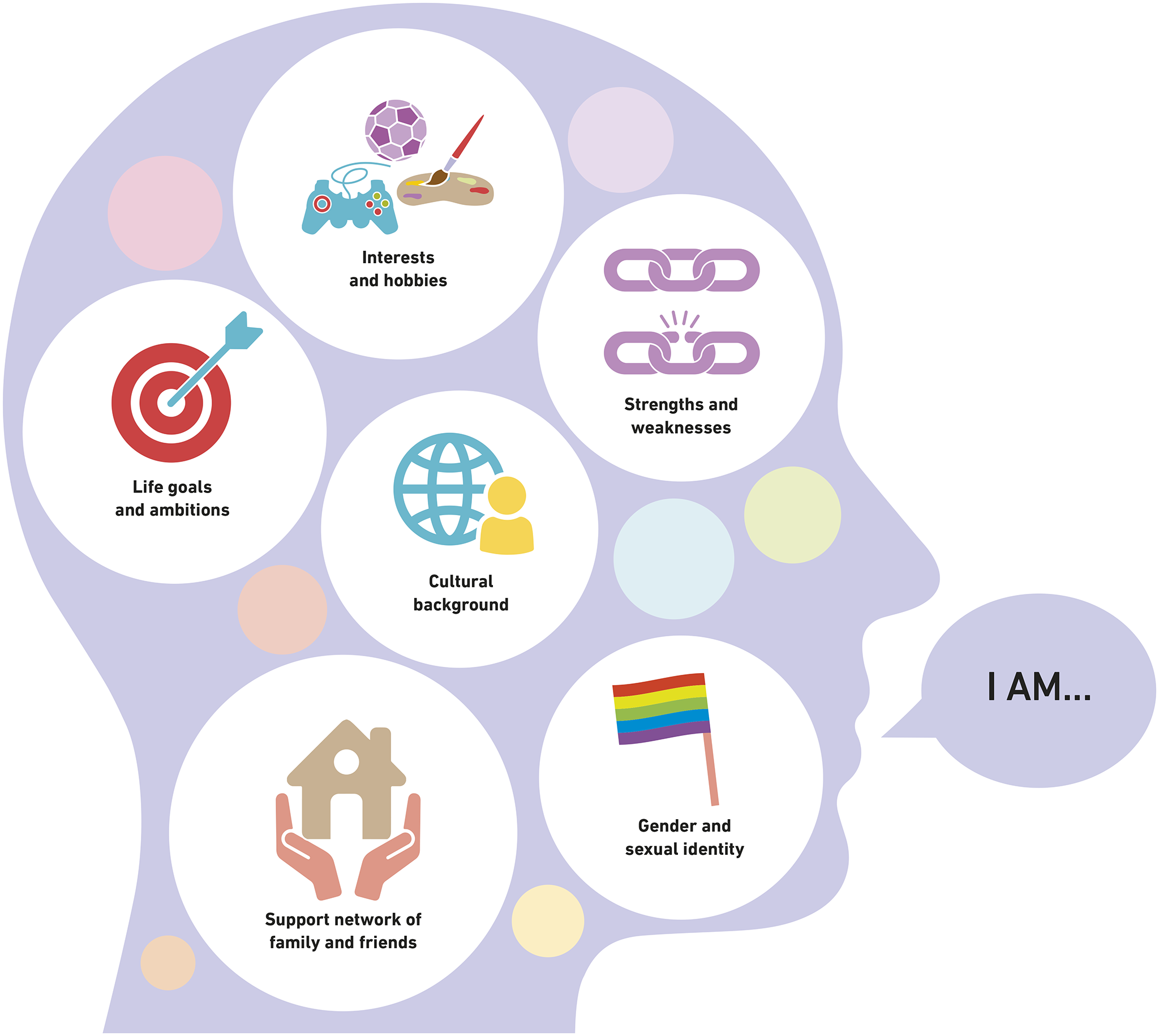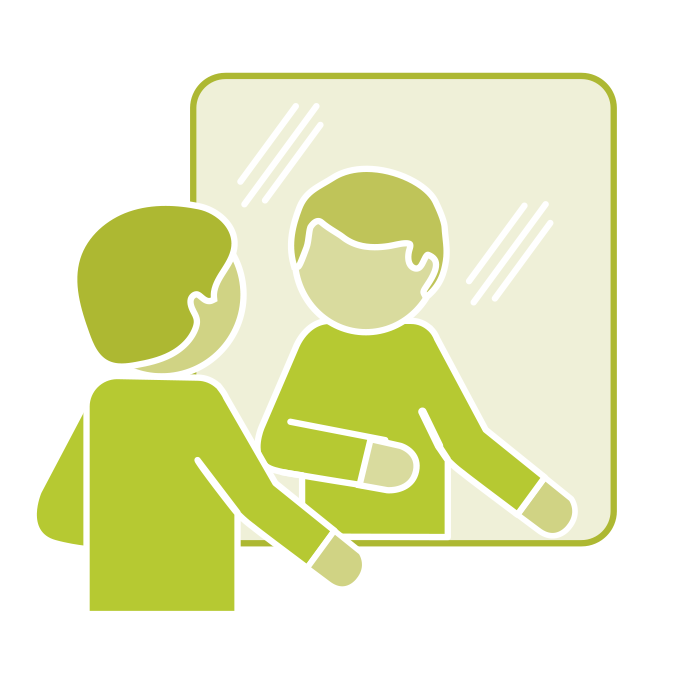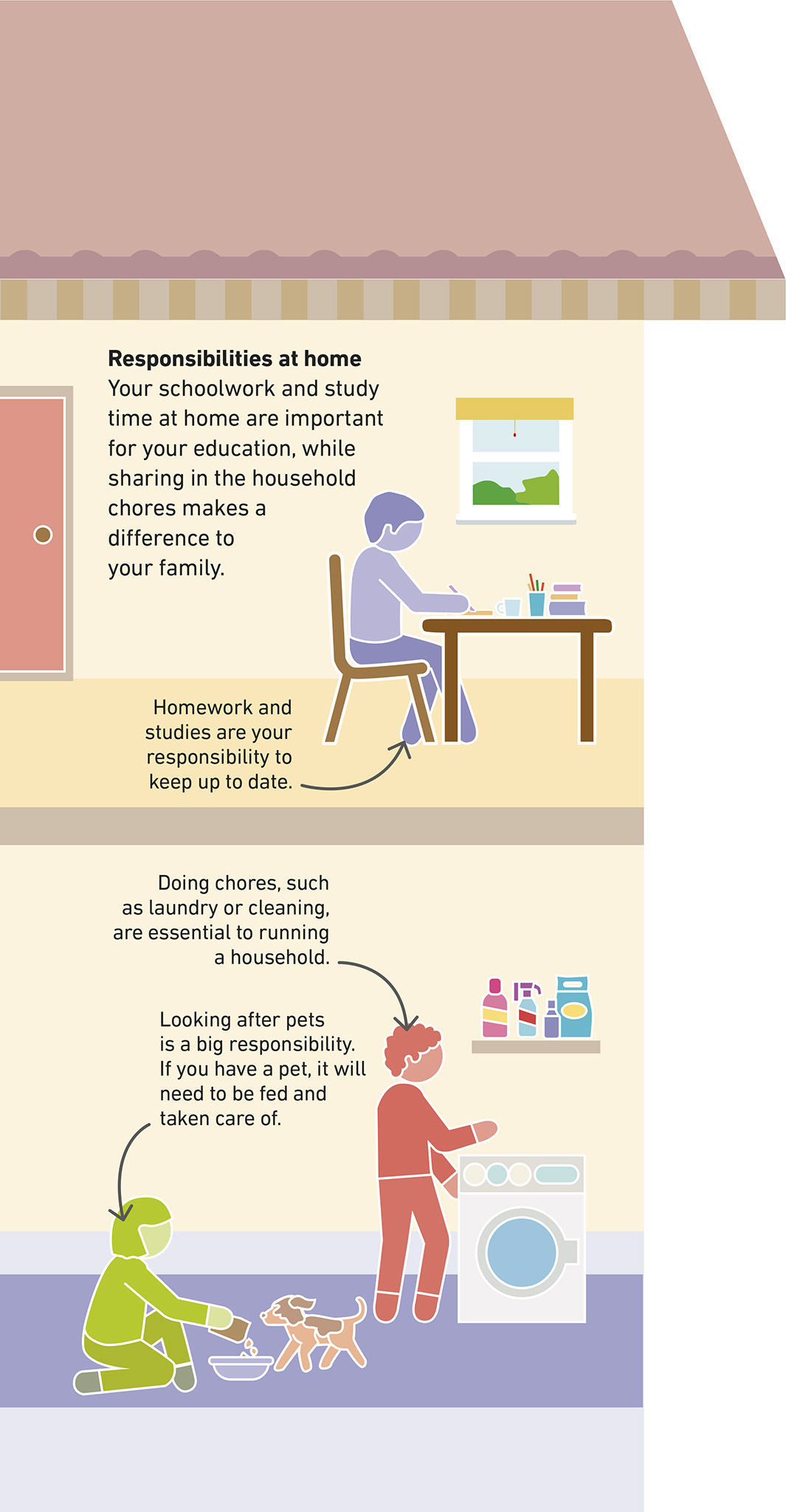Kofi Annan (former UN secretary-general), World Conference of Ministers Responsible for Youth, Lisbon, Portugal, 1999
As you grow up, you discover how all the different parts of you come together in one unique package to form your identity. You learn more about yourself and who you are as a person.
Some parts of your identity may be clear at an early age, while others may develop as you grow older. It may take you some time to fully discover who you are, and your identity continues to change throughout your life.
We know what we are, but not what we may be.
n Double-tap image to read the labels
What makes you you?
Everything about you is the reason you are unique. Although it is impossible to record every characteristic you have, a combination of features, such as personality type, values, interests and hobbies, family and cultural background, and gender and sexual identity, comes together to form your identity, which makes you different from everyone else.
Personal values
Your values are the beliefs and principles you care about that influence the choices you make and the way you act in everyday life. Your values are usually influenced by your family, friends, teachers, and community. Everyone has a set of valuesfor example, that its important to be respectful, kind, honest, and fair. Some people may believe certain values are more important than others, and the values you think are important now might change as you get older. Thinking about your values each time you have to make decisions will help you feel that you are being true to yourself.
Thinking independently
Listening to different viewpoints helps you think independently and make informed decisions on your own. Learning about other points of views can help you understand other people and expand your knowledge of the world.
Empathy and kindness
Empathy is the natural ability to understand how others are feeling. Showing compassion and kindness helps you to form trusting and lasting relationships, since everyone appreciates being understood and cared for.
Respecting others
Youll meet people from all walks of life. Respect and accept their identities and ideas just as you would like them to accept you. Whoever they are and wherever they come from, they have feelings too.
Managing peer pressure
Friends can have a big influence on how you think and behave. Sometimes you might feel pressure to act differently or change who you are to fit in. Remember, its okay to be different and to say no or leave the situation if you feel uncomfortable.
Staying healthy
Looking after yourself and your body will help you have a happy, healthy mind too. If you eat well, get enough sleep, try to be kind to yourself, and take time to do the things you enjoy, youll be much better equipped to tackle the challenges of everyday life.
Our world | KNOWING YOURSELF
Physical well-being
Eat healthy foods
Eating a varied and balanced diet that includes proteins, grains, fruits, vegetables, dairy, vitamins, and minerals gives your body essential nutrients, boosts your energy levels, and improves your concentration.
Exercise regularly
Whatever sport or physical activity you enjoy, regular exercise helps you develop muscle and bone strength. Exercise also causes your brain to release endorphinschemicals that make you feel happy.
Our world | KNOWING YOURSELF
Mental well-being
Accept yourself
Self-acceptance is learning to embrace all the different aspects of yourself, including the ones that you feel need improvement. It can be tricky, but try to appreciate who you are and what you have, and talk kindly to yourself, just like you would to a friend.
Simple pleasures
Making time for hobbies and interests can help boost your mood. Whether its reading a book or going for a walk, take time to do the things you enjoy.
Our world | Knowing yourself
Talk to someone
If youre feeling overwhelmed, dont be afraid to talk about how you feel to a trusted adult, such as a parent or a teacher at school. If you need more help, you can try speaking to your school counselor or a doctor to help you manage your feelings.
See also
g
Relationships and feelings
The relationships you have at home, at school, or out in your wider community can provide support and create a safe space where you can talk about your feelings if you want to. As you get older, its normal for these relationships to shift and change.
Responsibilities
As you grow up, you become more aware of your role at home and might start sharing responsibilities with your family members. The more responsibilities you take on, the more independent and valued you feel.

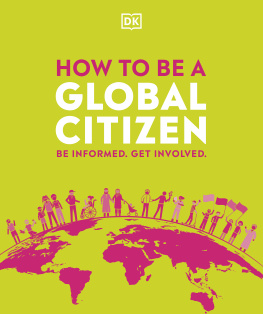







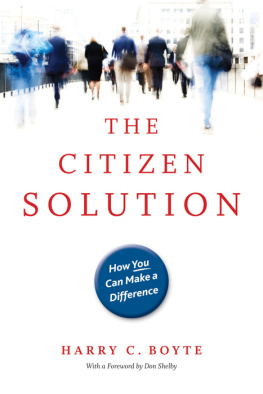
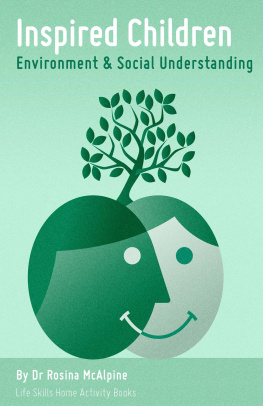
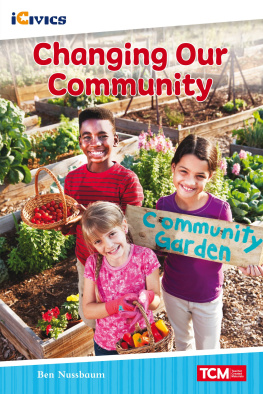
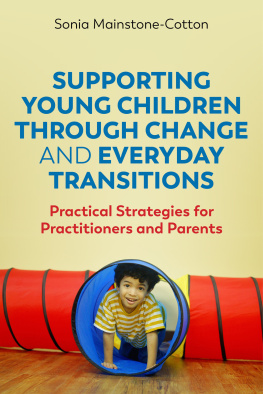

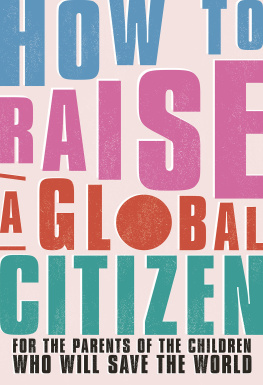



 No one is born a good citizen; no nation is born a democracy. Rather, both are processes that continue to evolve over a lifetime. Young people must be included from birth. A society that cuts off from its youth severs its lifeline.
No one is born a good citizen; no nation is born a democracy. Rather, both are processes that continue to evolve over a lifetime. Young people must be included from birth. A society that cuts off from its youth severs its lifeline. 
